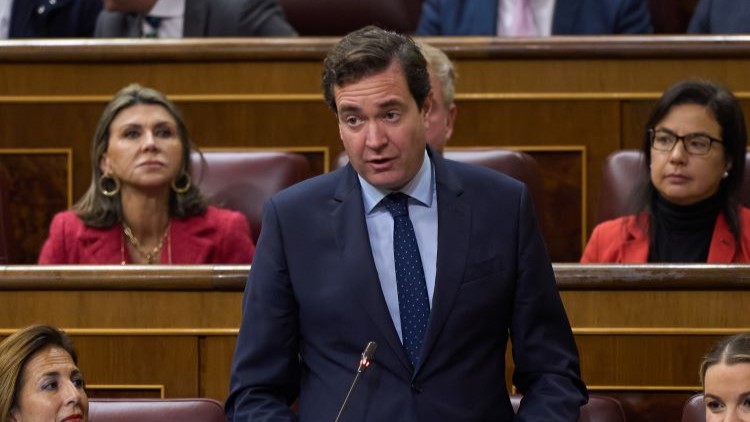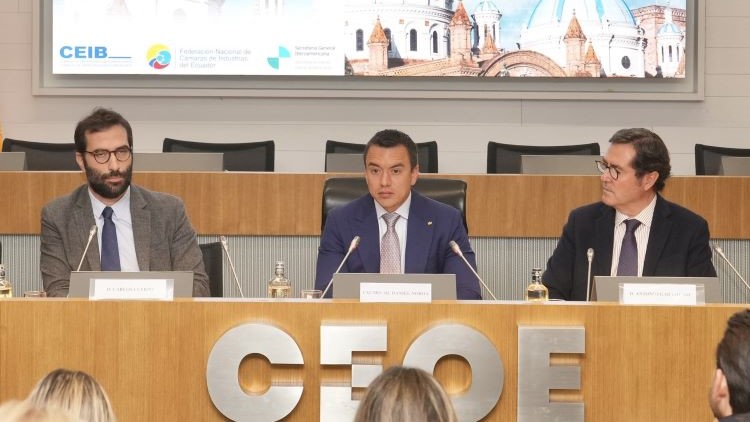Eduardo González
The Popular Parliamentary Group in Congress has urged the Government to “promote a State policy in relation to Western Sahara” that allows for the recovery of “the political consensus around this dispute” and to inform the Lower House “of the calendar agreed with Morocco to the reopening of commercial customs” in Ceuta and Melilla, “which to this day remains a secret.”
In a Non-Law Proposal presented on December 18 by MPs Pablo Hispán and Miguel Tellado (spokesperson for the Parliamentary Group) for debate in the Foreign Affairs Commission (and published past monday by the Official Gazette of Congress), the PP warns that the process of decolonization of Western Sahara “is one of the pending disputes for the international community and in which Spain has a fundamental role due to the historical link with the territory and its commitments in the United Nations.”
Likewise, PP remembers that, on March 14, 2022, the President of the Government, Pedro Sánchez, “signed a letter addressed to the King of Morocco of which, to this day, we still do not know the reasons that led to it” and that “It was made public through a statement from the Moroccan Royal House and not by the Presidency of the Government.” “It is unknown who was the editor and who was the emissary, given the numerous errors it contains, among others the name of the Ministry of Foreign Affairs itself, which makes it impossible that its author was someone linked to the foreign service of our country,” it continues.
In the letter, remembers the PP, “the President of the Government agreed to break with more than four decades of common position of the different Spanish Governments regarding this dispute”, by declaring that Spain considered “the Moroccan autonomy initiative, presented in 2007, as the most serious, credible and realistic basis for the resolution of this dispute.” “Since then, there have been numerous statements approved by the Congress of Deputies that have demanded a return to the position of neutrality in the dispute and to facilitate an agreement between the parties,” warns the PP.
“This fact, furthermore, was part of a policy regarding Morocco that continues without giving any results”, since, “to this day, the commercial customs with Ceuta and Melilla remain closed and there is no calendar for the opening”, it continues. “Likewise, an audience between the President of the Government and the King of Morocco was suspended within the framework of the XII High Level Meeting between both countries, just when the President of the Government was about to travel to Morocco,” and “the tensions migration have continued to exist in the Strait”, despite the fact that the Spanish Minister of Foreign Affairs, José Manuel Albares, has “constantly reaffirmed that the relationship between Spain and Morocco was mutually beneficial in that sense”, the text continues.
For all these reasons, the Non-Law Proposal of the Popular Parliamentary Group urges the Government to “promote a State policy in relation to Western Sahara, recovering the political consensus around this dispute and fulfilling the will expressed by the Congress on April 7 , June 30 and July 13, 2022.”
It also asks the Executive to inform the Lower House “of the calendar agreed with Morocco for the reopening of commercial customs and which to this day remains secret”. Last December, Albares transmitted in Rabat to the Government of Morocco that, on the part of Spain, “everything is ready so that land customs with Ceuta and Melilla can begin to operate” (one of the points of the Road Map adopted in April 2022 in Rabat by Pedro Sánchez and Mohamed VI) and, therefore, “no further pilot tests are necessary” (in reference to the three pilot tests carried out in January, February and May 2023). However, he was unable to obtain any date for the opening of customs from his Moroccan counterpart, Nasser Bourita, who attributed the delays to “technical problems.” Melilla customs is closed in 2018 and Ceuta has never had a customs.
PP also asks the Government to increase cooperation in the Sahrawi refugee camps in Tindouf (Algeria), “as with Morocco, especially in the areas affected by the earthquake last September”, and to report to Congress of Deputies, “through an appearance”, on the activities and proposals formulated by the envoy of the Secretary General of the United Nations for Western Sahara, Staffan de Mistura, as well as the situation and work of MINURSO.







